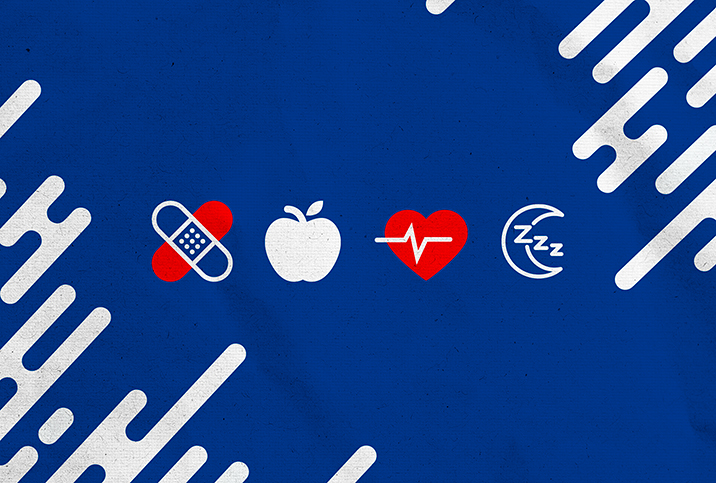Between the Pages: 'Manhood Rx' Helps Men Make Better Health Decisions

In his new book "The Manhood Rx: Every Man's Guide to Improving Sexual Health and Overall Wellness," urologist Arthur L. Burnett, M.D., presents a comprehensive overview of men's sexual health problems.
Covering common issues such as erectile dysfunction (ED), prostate cancer, low libido and Peyronie's disease, Burnett explains how these issues relate to overall health. For example, ED is often a predictive risk factor for heart disease in men. This accessible 250-page book, published by Rowman & Littlefield, makes a compelling case for why sexual health is overall health.
Burnett is a world-renowned urologic surgeon and one of the leading doctors in the field of sexual medicine. He is a professor of urology and director of the Basic Science Laboratory in Neuro-Urology at Johns Hopkins University in Baltimore. Burnett is also the author of "Patients' Guide to Prostate Cancer" and a co-author of "Prostate Cancer Survivors Speak Their Minds."
In this Q&A with Giddy, Burnett talks about his motivation for writing the book and the effectiveness of treatment for men's issues such as erectile dysfunction and low testosterone.
Editor's note: This interview has been edited for length and clarity.
Why did you decide to write 'The Manhood Rx'?
Burnett: I value my patients and how they can be best informed to give themselves the best care. In my years of being a physician and a surgeon, I have always admired and most appreciated patients who want to arm themselves with accurate information and make the best decisions about their health. I think it's important to put something out there that is from a trained and authoritative source, someone who really knows the subject matter. It can be done in a lighthearted way—not too jocular—which then allows people to feel like they're making very good decisions.
My background affords credibility and knowledge in the area. I've made some original contributions to how we've advanced sexual medicine. Some have said, "Dr. Burnett, you're the main transformative figure in our field for the past 25 years." From discoveries of the basis of penile erection to the science that led to the development of Viagra, to various innovative surgical approaches to the science of priapism [prolonged erections], we figured out how it worked.
Fortunately, I've been on guidelines panels for the American Urological Association, helping the field go forward with practical information that will help practitioners and patients. My background traverses everything from the science to clinical practice and surgery.
I felt that maybe I'm one of the best sources to put out good information on any aspect related to male sexual health.
Men are often hesitant to discuss their sexual dysfunction, and sometimes doctors don't ask about it. But as you write, sexual problems can be a sign of serious health issues. Talk about the relationship between sexual health and general health.
The essence of taboo subject matter is often put off to the fringe and maybe thought to be recreational or unimportant. An important fact is the function of the penis involves blood vessels, nerves, hormone systems and mental health, all convalescing into how your function occurs in the male organ.
If we talk about cardiovascular health, that's equivalent to penile vascular health. All these factors are relevant there. If a man can identify changes in his sexual function and erection difficulties, then that may actually be a harbinger for cardiovascular and metabolic and hormonal health issues.
Reading the book and recognizing this relationship may be a first step to bringing about overall wellness. Hopefully, that will trigger going and getting your health checked out from the indication of having sexual dysfunction.
Your research was instrumental in the discovery of nitric oxide's role in erectile function, which led to the development of Viagra. How has treatment for ED improved since ED medications first hit the market in the 1990s?
I think we've made great strides. Back in the '80s and early '90s, management was largely, in general, tangential and superficial, focusing on things that were helpful but not necessarily well-informed; telling people ED is part of aging or psychological things. Those aren't really addressing the problems unless we understood there was an organic or physical basis to erectile disorders. We were able to figure out the science and bring forth oral medication, and I think that changed the tide. There really is a physical basis, [and] we can address these things in a forthright manner.
There is science to how we can help patients and their partners. It certainly brought some legitimacy to erectile dysfunction management and treatments. I think it's helped the medical field and the general public be a little more frank about the health issues affecting our sexual abilities. That's legitimized vacuum pumps and penile injections. Come in the door and let's address the problem.
You write that every week men come into your office asking for testosterone replacement therapy (TRT). There's a lot of misinformation and misunderstanding surrounding testosterone. What would you like men to know about testosterone therapy?
That's been one of the more frustrating things I've encountered in my practice as a sexual medicine practitioner. There has been such misinformation. There's this notion that testosterone is a panacea to everything, that it's some fountain of youth that somehow will correct all kinds of things.
Testosterone should be done with a little more precision. A patient can be evaluated with a blood test for their testosterone level. We can evaluate the symptoms I think are relevant to testosterone therapy, which is more along the lines of sexual libido and sexual drive. It would have its impact there.
Too often, patients come in the door and say, "My sexual function isn't right." They've got bad metabolic syndrome or cardiovascular disease and their erections are very poor. Maybe they are misled to think testosterone therapy is going to correct everything. I think we need to be more forthright and accurate in how we understand the role of testosterone and what interventions will likely have the best impact on patients.
The book has a chapter on prostate cancer. What advice do you have for men ages 40 and older in regard to prostate cancer screening and prevention?
It's a hot-button topic. Prostate cancer is the most common cancer in men, second to only skin cancers. It's the most common solid cancer in men in the United States and second only to lung cancer in terms of cancer-related deaths. It's not a trivial matter at all. We're talking about people's lives and survival.
The prostate is [located] at a very precarious part of the body. It's adjacent to areas of reproductive and sexual functioning. All too often we hear about patients who do not even want to get a prostate health checkup for fear that they get diagnosed and treated and lose their sexual function. We certainly have to recognize the ultimate form of erectile dysfunction is not being alive, and some men lose track of that.
Let's be forthright about all this. Let's still evaluate. Let's recognize interventions that are possible. Let's maintain your sexual health in the midst of a possible diagnosis and treatment. And we can all deal with that and move forward.


















